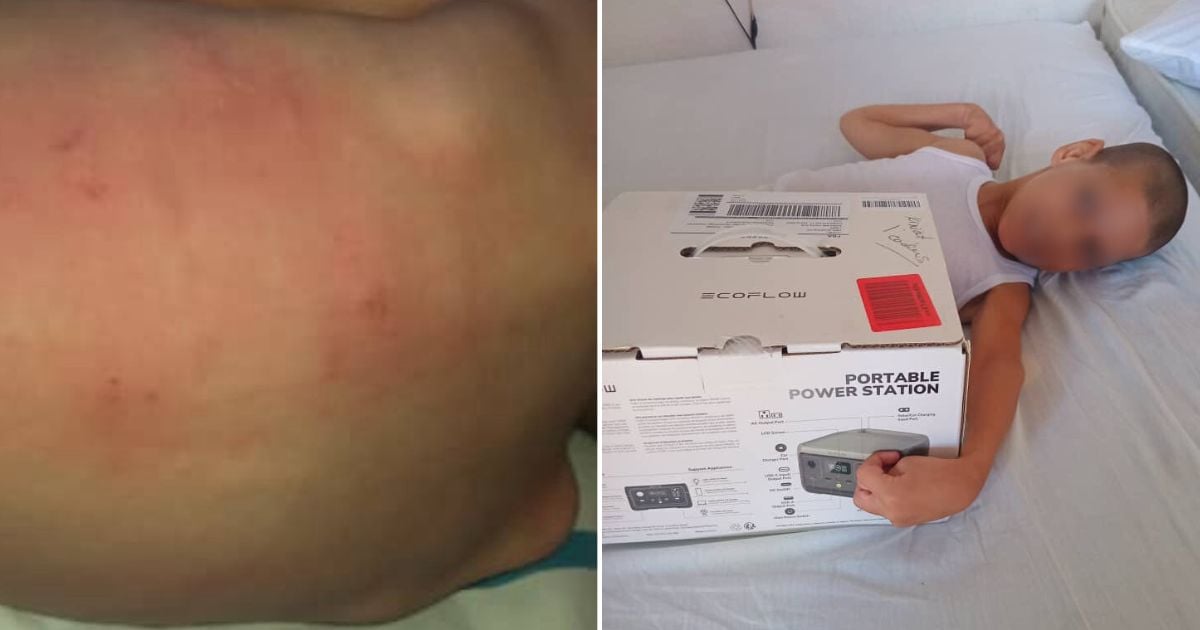Lesdian, a 9-year-old boy suffering from cerebral ischemic hypoxia, will no longer have to endure nights of anxiety in the dark or the relentless assault of mosquitoes. Thanks to a campaign spearheaded by the group "Cardenenses en Facebook", sufficient funds were raised to provide him with an electric generator, a crucial device that keeps his fan running during power outages, easing the challenging conditions he lives under.
The campaign, launched by Kiryat Poey, the group's administrator, began on June 1st with a post detailing the harsh living conditions faced by the young boy and his mother, Yaquelin, in their modest home in Cárdenas, Matanzas. Lesdian is unable to walk or speak and relies entirely on his mother, who lacks both resources and institutional support to ensure even a basic level of well-being.
During blackouts, the child experienced crises that prevented him from sleeping peacefully. His back was covered with mosquito bites, and Yaquelin couldn't leave him alone for even a moment. "Every blackout is a risk. Every night without power is a night of suffering," Poey warned as she issued the call for help. They aimed to collect $395: $245 for the power inverter and $150 for shipping.
While authorities showed indifference—despite Yaquelin's repeated appeals to social workers and state agencies—the community came through. Ordinary people, both inside and outside the country, accomplished in just two weeks what is often unattainable for a Cuban family: gathering the funds and delivering the equipment to its destination.
By June 17th, the campaign's promoter confirmed that the inverter was in the hands of Yaquelin and Lesdian. "Today, Yaquelin's heart beats with a bit more hope, and Lesdian... can rest more peacefully," she wrote, sharing an image of the smiling child next to his new equipment. For many, it was just another picture. For his mother, it was a vital victory.
Days later, a reel was shared in the same group under the message: "Lesdian sleeps better... and so do we." It showed the boy resting with his fan on and the inverter functioning. "A scene that may go unnoticed by many, but for him and his mom, it means the world," read the post. "We didn't change the world... but we did change Lesdian's world a little. And that's a lot."
Lesdian's story not only highlights the extreme hardships faced by vulnerable families in Cuba but also underscores the power of citizen solidarity in the face of institutional neglect. Amidst such scarcity, every act counts, and this small relief for Lesdian is a collective victory that should not be overlooked.
Amidst the struggles encountered by numerous Cuban families, several solidarity initiatives have emerged, showcasing the community's commitment to the most vulnerable. A similar situation unfolded in Ciego de Ávila, where a disabled girl and her grandmother survived outdoors following years of institutional negligence. Their plight inspired a wave of solidarity and reignited discussions on the neglect of vulnerable individuals. Support was mobilized from various parts of the country to improve their living conditions.
In the United States, the sudden death of a Cuban father spurred an immediate response from fellow Cubans who came together to support the family. The bereaved mother and her children appealed for assistance, and within hours, a support network was established to provide material resources and emotional backing.
In Santiago de Cuba, the efforts of a priest touched hundreds when it was revealed that he managed to feed over 300 people in a single day. His actions not only alleviated hunger for dozens of families but also demonstrated how faith and community organization can make a significant impact during times of crisis.
Community Support and Institutional Negligence in Cuba
What challenges did Lesdian face during power outages?
Lesdian endured crises that prevented him from sleeping peacefully, his back was covered with mosquito bites, and his mother could not leave him alone during blackouts.
How did the community help Lesdian and his mother?
The community raised funds to purchase an electric generator that would keep Lesdian's fan running during power outages, significantly improving his living conditions.
What does Lesdian's story reveal about the situation in Cuba?
Lesdian's story exposes the severe hardships faced by vulnerable families in Cuba and emphasizes the power of grassroots solidarity in the absence of adequate institutional support.
